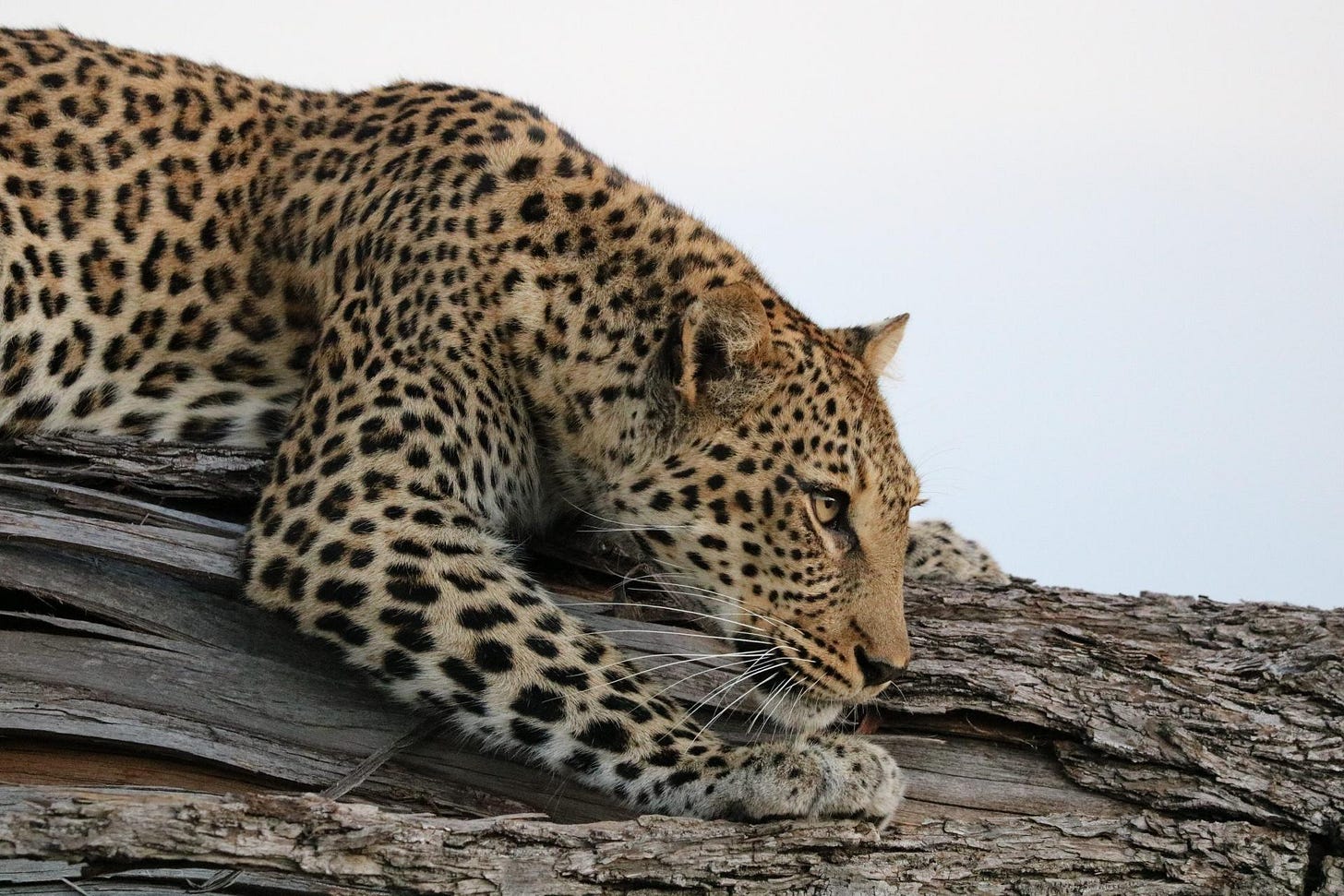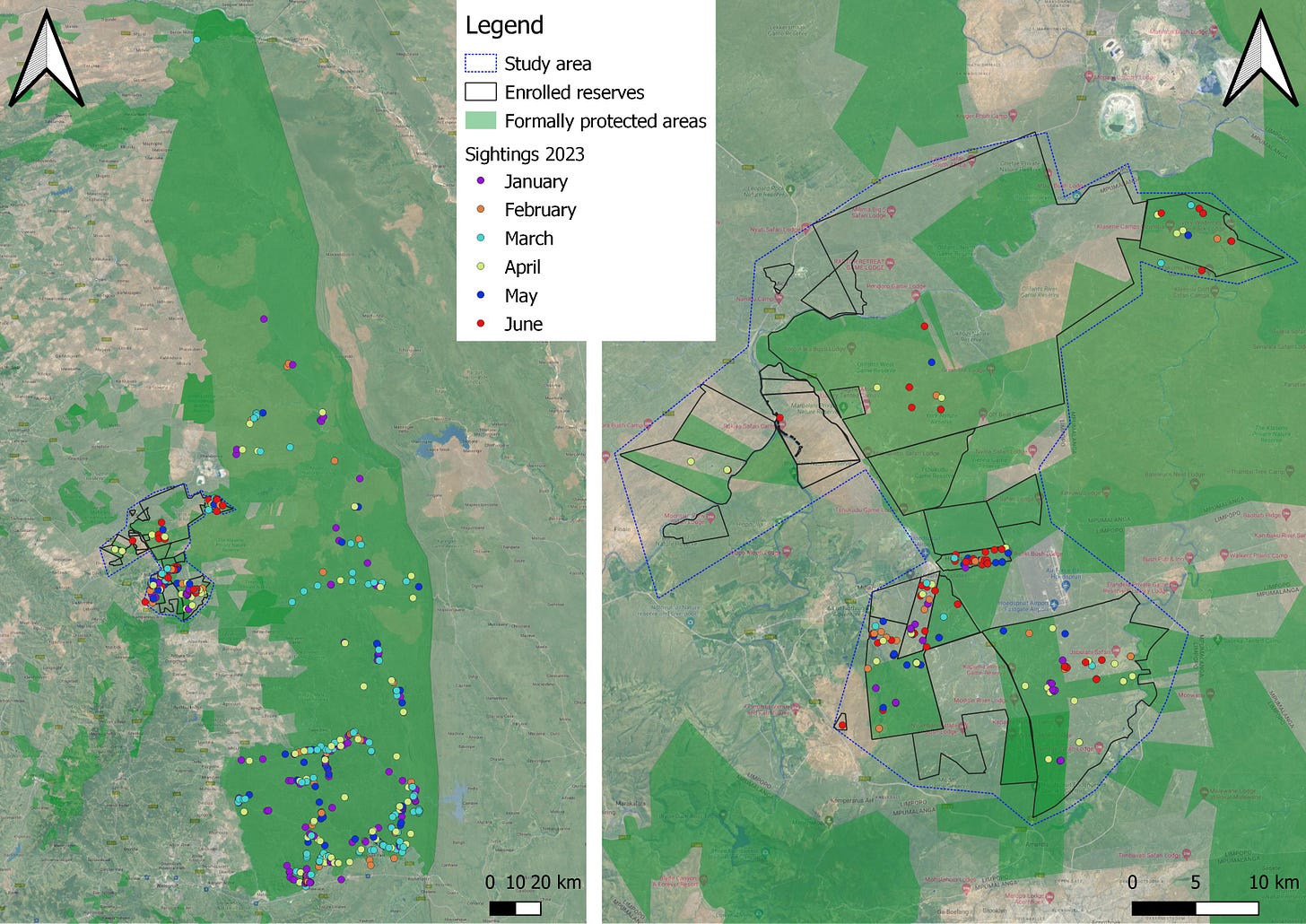Monthly newsletter - June 2023
From research to entrepreneurship - the development of the Ingwe Leopard Research
Juggling hats: The multifaceted journey of Ingwe Leopard Research
As the manager of the Ingwe Leopard Research, I wanted to take a moment to share with you the incredible journey I have been on. Running this project requires wearing multiple hats, and I find myself constantly immersed in diverse responsibilities.
From analyzing the data gather to uncover valuable insights about the elusive leopards, to creating meaningful partnerships with reserves, non-profit organizations, for-profit entities, individuals, and universities, there's never a dull moment! Additionally, I have been actively spreading the word about our work through various social media platforms like Instagram, Facebook, LinkedIn, and our Substack newsletter.
However, one of the most crucial aspects of my role is the constant search for funds. I explore avenues such as sponsorship, donations, crowdfunding, and funding applications to ensure the continuity and growth of our exciting research. It's a challenging yet incredibly rewarding endeavor, and I am grateful to have your support on this exciting journey!
Data submissions
This month, some of the reserves submitted their first sightings! It is great to see the teams coming on board and keeping a close eye on any leopard movement and track.
The number of reserves participating has significantly increased although not all have implemented the protocols yet. With the different operations and the daily duties that the reserves have to face, it is always a process to implement something new. However, I am fully confident that all these incredible partners will bring valuable data to the project soon.
Below are the top 5 contributors to the African Carnivore Wildbook! These numbers include all the submissions, including images from identikits. There are of course many more sightings submitted on Latest Sightings for the Kruger National Park and the Pilanesberg but with the high amount of guests visiting those parks, it will not be fair to compare it with the local citizen scientists.
Two of the partners, Transfrontier Africa and Wildlife & Ecological Investment are also collected a number of data in the Northern part of the study area. Those data are not yet uploaded on the African Carnivore Wildbook as they will form part of an internship training program starting soon. The interns will be responsible for doing indepth data analysis and for creating valuable reports.
Since the stakeholders’ meeting in May at the Royal Malewane Research Centre, more information are shared amongst some of the key local leaders. One of the male from the Hoedspruit Wildlife Estate was sighted three times in couple of hours, going from the Estate to the Rietspruit Game Reserve and back. He crossed an urban area and the main road. This shows the adaptability of leopards in living in human-dominated landscapes but also the risk they are taking to find new and/or extend their territories. With further understanding of leopard movements in the area, we will have the data to encourage better management decisions such as creating underpasses or speed bumps and implementing speed limits in order to increase connectivity and ensure safe dispersal of the wildlife.

The Waterberg
In the Waterberg, new agreements were signed with more NGOs and the Waterberg Research Support Centre. All have agreed to share their leopard data so we will soon start uploading them on the African Carnivore Wildbook. With this level of collaboration, our knowledge of the leopards in the Waterberg is going to extend massively. All these data will be analysed by students from the University of Pretoria who will be carefully selected.



Support Ingwe
Unfortunately, funds will dry out by October 2023 so I am urgently looking for financial support. I am working on many different venues, as I am committed to this research and to the reserves. Luckily, there are many ways you can support the project and help me ensures that we can sustainably run the research.
Enjoy Arid Wines. The owner is committed to give a percentage of the sales to the project.
Donate directly on the On Track Foundation website.
Buy an Ingwe Leopard Research tote bag. It is only R200 (roughly £10, 10€, USD10). Does not include delivery. Reach out to order yours! marine@ontrackfoundation.org
Travel with On Track Safaris to 9 different countries. All the net profits go directly into the research.
If you own a company, sponsor the research as part of your Environmental Corporate Responsibility
Don’t miss out on the crowdfunding campaign that will be launched on the 1st of August - it is reward based!






